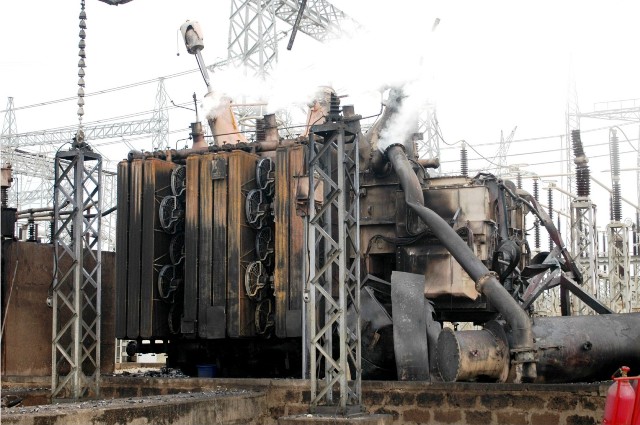Business
SON Tasks Lubricant Manufacturers On Standards

The Managing Director, Standard Organisation of Nigeria (SON), Mr Osita Anthony Aboloma, has called on manufacturers of lubricants to ensure their products meet the Nigerian Industrial Standard.
Aboloma made the call in Ilorin while presenting SON certificate of Mandatory Conformity Assessment Programme (MANCAP), to Polar Petrochemicals Ltd.
The Managing Director, who was represented by SON Group Head, Chemical Technology, Mr Agboola Folayan, advised management of the company to adhere to SON standard to sustain and maintain the award.
He therefore called on the management to synergise with the distributors to curb faking and adulteration of the products.
“Faking or any manner of tampering with products is usually traced to improper monitoring and communication gap hence the need to be on the lookout.
“By this certification, the company’s name and products are already in the SON website and can be accessed all over the world.
“The certification has also licensed the company to market its products beyond the shores of this country,” SON boss said.
Aboloma said that the two MANCAP certificates covered five products blended by Polar Petrochemical.
“It is important to note that MANCAP Certification has its conditionality which are clearly communicated in the award letter.
“However, the commitment shown by the management gives me confidence that polar Petrochemicals Ltd. with perseverance will not be found wanting,” Aboloma said.
Aboloma therefore called on Nigerians to patronise made in Nigeria products, saying they could compete with similar products manufactured elsewhere in the world.
“I urge the management and staff of the company not to relax as they say quality is not a destination it is a process. The challenges of striving for perfection should be your watch word,” he said.
SON Coordinator in Kwara, Mr Sunday Yashim reminded the management and staff of the company that it was not easy to get the MANCAP Certificates for their products.
Yashim said that management of the company should always strive to sustain the confidence SON had in their products to get the certificates.
He advised them to always improve on their products and should not compromise quality, adding that this was the only way to guarantee getting the certificates for other products.
“Take note that lubricating sub sector is full of competition and adulteration and this is very rampant in Kwara.
“You should guard against any form of adulteration of all your products to win the confidence of your customers,” Yashim said.
The Chairman, Polar Petrochemicals Ltd., Alhaji Tasiu Mustapha said his ambition was to manufacture product or brand that would not only be of good quality but should be acceptable to the consuming public.
“And this has come to reality with the presentation of the certificates.”
The chairman, who was represented by the Managing Director of the company, Mr Muhideen Babalola, described the presentation of the certificates as one of the best things that happened in his life.
“On behalf of myself and management of Polar Petrochemicals, I want to assure you that we shall ensure that the standard with which this company started with shall be sustained to all stakeholders’ satisfaction,” Mustapha said.
He said that the company within a year of its existence had not only won local certification and recognition with the MANCAP quality certification, but other international recognitions.
The chairman said that Polar Petrochemicals was the first lubricant manufacturing company, whether major or independent to be awarded the upgraded ISO 9001:2015 QMS and second in Africa to be so honoured.
He said that the company was the first lubricant manufacturing and marketing company to get the ISO 14001:2016 EMS in Africa.
“Polar Petrochemical is the first Lubricant manufacturing and Marketing Company (Major/independent) to be OHSAS 18001:2007 certified, this is the operational, Health and Safety Assessment Series Awards,” he added.
Mustapha said that the three awards and certification had resulted in nominating Polar Petrochemicals for the World Health and Safety Organisation for the NAIJASAFE AWARD 2017 coming up in Lagos.
“The harvest of awards is the testimony of the brand quality and has positioned not only the product brands but the company in the global league of international recognised company,” the chairman said.
SON head of Chemical Technology in Kwara, Mrs Mariam Dolapo said the certification would be valid for a period of three years from the date of issue.
She said that it was mandatory for polar Petrochemicals to always display the MANCAP logo on all its products.
Dolapo said that the products would be periodically put under surveillance to monitor conformance to standard, adding that “SON has the right to withdraw the certificate and logo if standard is compromised.”
Business
Ban On Satchet Alcoholic Drinks: FG To Loss N2trillion, says FOBTOB

Business
Estate Developer Harps On Real Estate investment

Business
FG Reaffirms Nigeria-First Policy To Boost Local Industry, Expand Non-oil Exports




